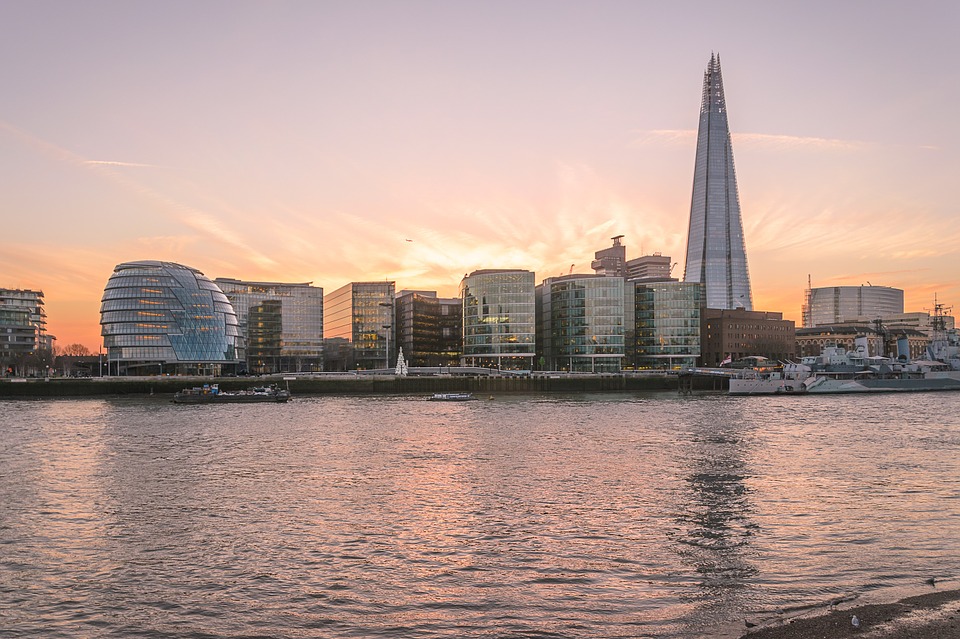Commercial transaction volumes in the UK are expected to reach around £50 billion for 2017 as a whole, some 15% more than sales recorded in 2016 despite Brexit and political uncertainty.
Such a strong performance in the face of continued political upheaval and economic uncertainty demonstrates that there is a long term investor commitment and confidence in the UK real estate market, according to the latest analysis from real estate services firm JLL.
The report says this is especially true of international investors, which account for around half the total volumes across the country, and 80% or more of those in London.
Indeed, investment into London’s office property has surged this year reaching £12.5 billion by the end of the third quarter, the strongest first nine months on record and 44% up on 2016.
According to Neil Prime, head of Central London Markets at JLL, while the weak pound has helped international investors get a better deal for their money, their investment criteria remains stringent; a global gateway city with strong fundamentals and that hasn’t changed.
‘Amid all the Brexit noise, negative political sentiment and pessimistic forecasts, there is some uncertainty but central London office market fundamentals remain sound in terms of supply. We are seeing new sources of occupier demand from life sciences and sustained activity from the technology, media and telecoms sector which will offset financial sector weakness,’ he explained.
The research shows that interest in prime London assets has been particularly strong from Hong Kong and mainland Chinese investors. In 2017 nearly £1 of every £2 invested in London offices was from Hong Kong. Food conglomerate Lee Kum Kee paid £1.3 billion for the Walkie Talkie building while Hong Kong-listed CC Land’s signed a £1.15 billion deal for the Leadenhall Building.
According to Alistair Meadows, head of Capital Markets in the UK, interest from Hong Kong is unlikely to change substantially in the short term. ‘The capital coming in from Hong Kong is a combination of private family money that is seeking to diversify and invest outside the territory, and mainland Chinese money that has been channelled through Hong Kong,’ he said.
‘While some capital controls have been introduced that will likely moderate the flow of capital from mainland China, suggesting volumes may be lower going forwards, we believe this trend is set to continue,’ he added.
German investors have also been active in the London market with Deutsche Asset Management, Union Investment and Deka Immobilien making significant acquisitions while Singapore’s sovereign wealth fund such as GIC, and Canadian pension funds such as CPPIB have all added to their UK holdings.
While traditional assets continue to hold their appeal, many investors are increasingly turning their attention to alternatives, a rapidly growing sector in the UK which is forecast to make up 30% of the commercial market for 2017.
‘We’re seeing both domestic and international investors looking at sectors such as retirement living, healthcare, student housing and build-to-rent as areas of investment opportunity that offer value, and prospectively sustainable and resilient income streams,’ Meadows explained.
But he warned that with Brexit very much an unfolding event, 2018 could bring many unanswered questions. ‘Political uncertainty remains the biggest threat. and there are some big question marks over how the Brexit negotiations will unfold, especially in relation to migration and skilled labour, which have a major impact on the UK’s construction and service industries,’ he pointed out.
Despite more multinationals firming up plans for post-Brexit operations, the London office market remains resilient. ‘While there is continuing uncertainty about the flow of financial services jobs out of London, the extreme downside risk to Brexit related jobs is, we believe, overstated,’ said Prime.
‘In the current environment, the market looks stable and while unlikely to deliver widespread growth, an increase in office rents is forecast to return from 2019. Office occupiers will seek flexibility, employees will seek the best places and location and asset choice selection will be key to investor performance,’ he added.
And to sum up Meadows said that while investment volumes in 2018 may not match their 2017 growth of 15% or more, international investors are keeping a very close eye on the market. ‘The fact that long term institutional global capital has continued to invest in the UK this year despite the uncertainty bodes well for the future,’ Meadows concluded.
Source: Property Wire

